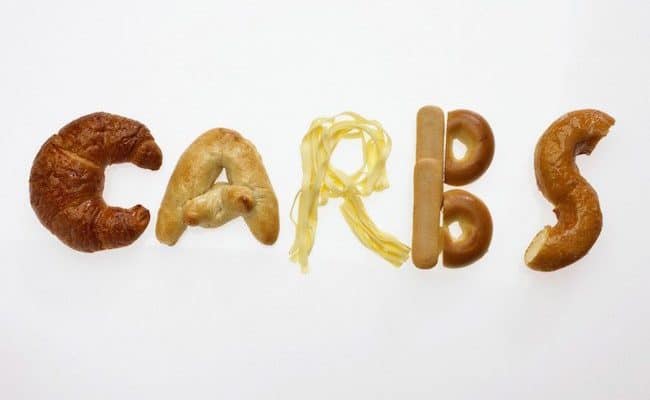
Minimize stress and live a healthier life
Stress, be it in your job or personal life, can wreak havoc on you eating habits. When you are under stress, the balance of hormones in your body can change, leading to cravings, increased appetite or even a lack of appetite. Limited time, energy and motivation can also affect your physiological approach to food, as well as what types of food you eat and when you eat. Changes in weight due to stress vary greatly from person to person deepening on how they respond to stressful situations.
For some of us, the slightest hint of stress in our lives will have us reaching for the nearest chocolate bar; while full ongoing emotionally draining situations can see us plough throw a huge amount of unhealthy food. For others similar anxiety inducing situations can lead to skipping meals and loss of appetite. For this reason, stress in our lives can cause both weight gain or weight loss.
Stress and weight gain
The hormonal influence on weight gain
Stress can have more powerful effects on the human body than is often thought, producing changes in the function of the endocrine system and therefore on the hormones the body produces. Hormonally speaking, there are a number of reasons why stress can cause weight gain. When we are stressed, the body releases adrenalin, in addition to corticotrophin releasing hormone (CRH) and cortisol. This potent mix gives us an instant energy boost and may in fact decrease appetite at first; however, this effect is short lived. This system is a classic fight or flight response, however, in the past when we made have needed to physically fight or run from the cause of the stress, now we often do not expend this energy.
Cortisol is a longer lasting hormone than the other two and is thought to remain at elevated levels long after the cause of the stress has passed with the role of stimulating hunger so that energy consumed during the fight or flight can be replenished. This increase of appetite can lead to an increased intake of food, simply due to hunger, although we have not burnt the extra calories our body thinks we have. High levels of cortisol also tend to result in accumulation of fat around the abdominal area, which is thought to be the most dangerous in terms of increasing risk of heart disease and diabetes.
Carb Cravings
Ever found yourself lusting after a big bowl of pasta or something sweet when you are under stress? A craving for carbohydrates is a common response to stress hormones, as sugar is the quickest way to replenish muscles that would have been needed in the fight or flight response. Carbohydrates are broken down in the body to form sugar, which can then enter cells. To allow the uptake of sugar from the blood to cells in the body, we need insulin and high levels of blood sugar. These two when taken on a regular basis are known to be a cause of weight gain.
Comfort Eating
Whilst hormones have some effect on appetite and weight gain in the presence of stressful situations, to some degree the mind can also contribute to the amount and type of food we choose to eat. Carbohydrate craving due to stress may well have been induced originally due to elevated cortisol levels, however if you gave in to these cravings once, the body learns that there is some comfort in eating these types of foods. This in turn may lead to the development of an ongoing behavioural pattern. This can lead to a habit of turning to carbs whenever you are under stress.
To avoid this habit, which can result in weight gain over time, try to find other distractions or releases to alleviate stress instead of food.
The comfort eating gene
Recent research carried out in Israel has suggested the presence of a gene termed ‘The Comfort Eating Gene’. The gene is responsible for the production of a protein called urocortin-C, which is thought to have an effect on the metabolism of fats and carbohydrates in the body. It was suggested that the production of this protein was elevated during times of stress; however, this is speculation at this point as the research was carried out in genetically modified mice and has not been applied to humans as yet.
Bad food choices and lack of time
When we are under stress we are liable to make bad food choices in the name of cravings, comfort eating or even just lack of time. If we are very busy, it is tempting just to drop in at the local fast food joint for carb fix that takes ten minutes or throw a frozen pizza in the microwave, rather than to take time to shop for healthy ingredients, think of a meal and cook it. Over time, a diet of high fat refines carbohydrate and processed foods that lack nutrients can play a huge part in weight gain.
Lack of time can also mean there is no time to exercise, which means you are not burning the excess calories you are consuming and are more likely to gain weight.
Stress and weight loss
While some people gain weight due to stress, for others the total opposite effect takes place. In these people stress can result in drastic weight loss. Serious ongoing stress can lead to anxiety, which can often trigger unintentional weight loss. Anxiety can lead to a loss of appetite, abdominal pains, or a feeling of fullness soon after beginning to eat, resulting in less food intake.
Those who are under a lot of stress may simply forget to eat, due to putting food as a low priority compared to other events in their lives. This leads to skipping meals and often results in weight loss. If this is the case for you it is important to see a health professional as you are at risk of developing nutritional deficiencies which can have serious consequences for your health and also increase anxiety levels.
What to do to minimize stress and maintain your weight.
1. Exercise
This is a great way to relieve stress and burn calories. When you exercise, hormones are released that can counteract the stress hormones and make you feel better. They can also help to control insulin and blood sugar levels, which can serve to repress the appetite and stop cravings. However, it is important to be aware that excessive exercise can in fact increase cortisol levels, so choose an activity that is not too intensive and that you enjoy for the best stress relief.
2. Eat a balanced diet
A diet rich in a variety of foods from all food groups is the best way to keep your body and mind healthy. Try to make it easy for yourself by keeping healthy foods on hand that are easy to prepare. Foods such as frozen veggies are great as they can be kept for a long time and can quickly be defrosted for a healthy stir fry or soup in a hurry. To save time you could even try making large batches of healthy stews, soups or casseroles and freezing in individual portions for a quick, stress free meal when you have less time. Unsalted nuts also make a great nutritious snack on the run.
3. Don’t skip meals
Eating regular meals that contain complex carbohydrates is the best way to keep blood sugar levels constant, minimize cravings and avoid weight gain. Try to eat small frequent meals rather than less large ones and choose low GI options for the best blood sugar control.
4. Relax
Taking time to relax and do something for you is the best way to beat stress. So no matter how hectic your life gets always make time to do something you enjoy that distracts you from your everyday life. This time to unwind will help you gain perspective and make you less likely to turn to food for comfort.
5. Choose high fibre nutritious snacks
By snacking on nutritious, high fibre foods, you can curb those carb cravings without turning to unhealthy fattening foods. Fruit, wholegrain cereal or toast make great options that also provides nutrition.
6. Supplement vitamins
It is thought that stress can lead to depletion of some vitamins in the body, particularly if you are frequently missing meals, which leaves you at risk of deficiencies. Vitamins B and C and calcium and magnesium are the most at risk. A good multi-vitamin can help to restore the balance and keep you healthy despite the stress.
7. Avoid things that can increase stress
Caffeine, alcohol and smoking are all thought to lead to increased stress levels and cause a rise in cortisol. This produces the drop in blood sugar which leads to hunger and cravings and possible overeating, so avoid these substances if you are feeling stressed out.
8. Eat enough calories
It has been found that those who deprive themselves of too many calories in an effort to lose weight can induce a biochemical response in the body that in fact leads to increased hunger and stress levels. Extreme dieting is not the answer to stress related weight gain, instead follow a healthy, balanced diet and incorporate some exercise into your daily life.
References used in this article











Katherine says
I am very stressed during the exam period and I tend to lose 5-10 pounds every year end…I cannot concentrate enough and I get sick very easily. What can I do get rid of stress? Thanks!
Alex Chris says
Having stress during exam periods is pretty normal and common to many people. Some people gain weight because of this, while others tend to lose weight. Those that lose weight feel tired due to lack of vitamins and balanced meals. Getting rid of stress is not easy especially in periods you’re under high pressure (such as exams). Some tips to help you control stress are already mentioned in the article and these are: regular exercise, balanced meals,regular meals, high fibre snacks, multi-vitamins, less smoking and alcohol.
Besides that you can also:
1. Take regular breaks
2. Try to deal with one thing at a time
3. Prioritize your tasks and make efficient use of your time
4. Relax, even if you fail the exam is not the end of the World.
5. Sleep good
6. Try yoga and breathing techniques for better stress management
7. Talk with friends
Other than that you need to work on the mental aspect of stress and understand that being stressed can only do bad and no good.
susan says
I highly recommend Marcelle Pick’s book “Are You Tired and Wired?” I found it really informative and she explains in great detail the link between stress, weight and overall health.
Eliz says
Hi I have been under enormous stress at work since september, working long hours 10 – 12 a day daily and also at the weekends as well. 7am to 6pm most days and then 2 hours when I get home and 3-5 hrs over weekends.
I have just noticed and so have my collegues and friends that I have lost weight. My husband also mentioned it.
I saw a doctor and he said my HB was low and I am on Iron and my sugar levels slightly raised and he wants me to relax and exercise. I have lost so much weight. 5kg Won’t exercising make me lose more. I want to gain it back and I am trying to eat well but it is hard to get 3 good meals in the day with my workload and children and husand and housework.
I hate evryone saying you’ve lost weight and must look after yourself. I have been trying over the last 2 weeks but the weight is not coming back. I have tried to do less hours by dropping one hour at work and home but not managing to gain the weight back quickly.
What do you advice?
Naomi says
I would suggest small frequent snacks between meals as a good way to add extra calories to help with weight gain. Exercise is great to de-stress, but as you say it may cause you to lose more weight which obviously is not desirable. Try to focus on three meals a day and add in higher calorie and protein snacks such as nuts and dried fruit,cheese, milk drinks or full fat diary such as yogurt for a snack. Try to choose things that can be eaten quickly and transported well to fit in with your schedule.
You could also try increasing the calorie content of your main meals by adding extra calories or fats (try to choose healthy fats such as olive oil). Try drizzling olive oil over a pasta dish or vegetables, adding grated cheese or full fat yogurt to meals, or serving vegetables with a milk based sauce to increase calories without having to eat more.
Trina says
I have alot of stress due to my relationship that now i’m gaining weight, I train 5 days a week, and workout 3 times a day and eat clean. I shouldnt be putting on weight which is frustrating to say the least. I’m not sure what too do:( I just feel that nothing can go right and feeling drpressed… Life sucks
Angela says
When I lost my job – I lost several pounds within a few days – I wasn’t eating much – no appetite – and the same thing happened a couple of times due to the relationship I am in – we love each other but our circumstances have been difficult – anyway – I will lose weight that day – I have checked my ketones during this time and other times during stress and I will produce them – also – in general the last few months I have lost about fifteen pounds without trying – not sure what is going on but I have been in a lot of pain due to a fractured wisdom tooth – it’s caused nerve/ear pain – finally had them pulled today – I hope I don’t gain the weight back but I’m wondering if the loss has anything to so with the pain and stress from the tooth. It didn’t affect my eating habits really – maybe a little but I don’t think the loss has to do with that – I take in just as many calories
K.D says
4 months back iv got some digesion problems i lost around 5.5 kg of my body weight and i m finding it difficult to gain back again any suggestions plzz
Sophie says
I usually weigh 8.5 stone 5’4″ my partner passed away in march this year & within 2 days weight fell off, I lost a stone. Initially I wasn’t eating properly for weeks, I’m eating better but left with 3 young children I find I’m skipping meals sometimes because I’m busy it’s nearly 5 months on & although my bra & clothes are better fitting there has been no difference on the scales.
I want to regain my weight through healthy eating but its just not happening 🙁